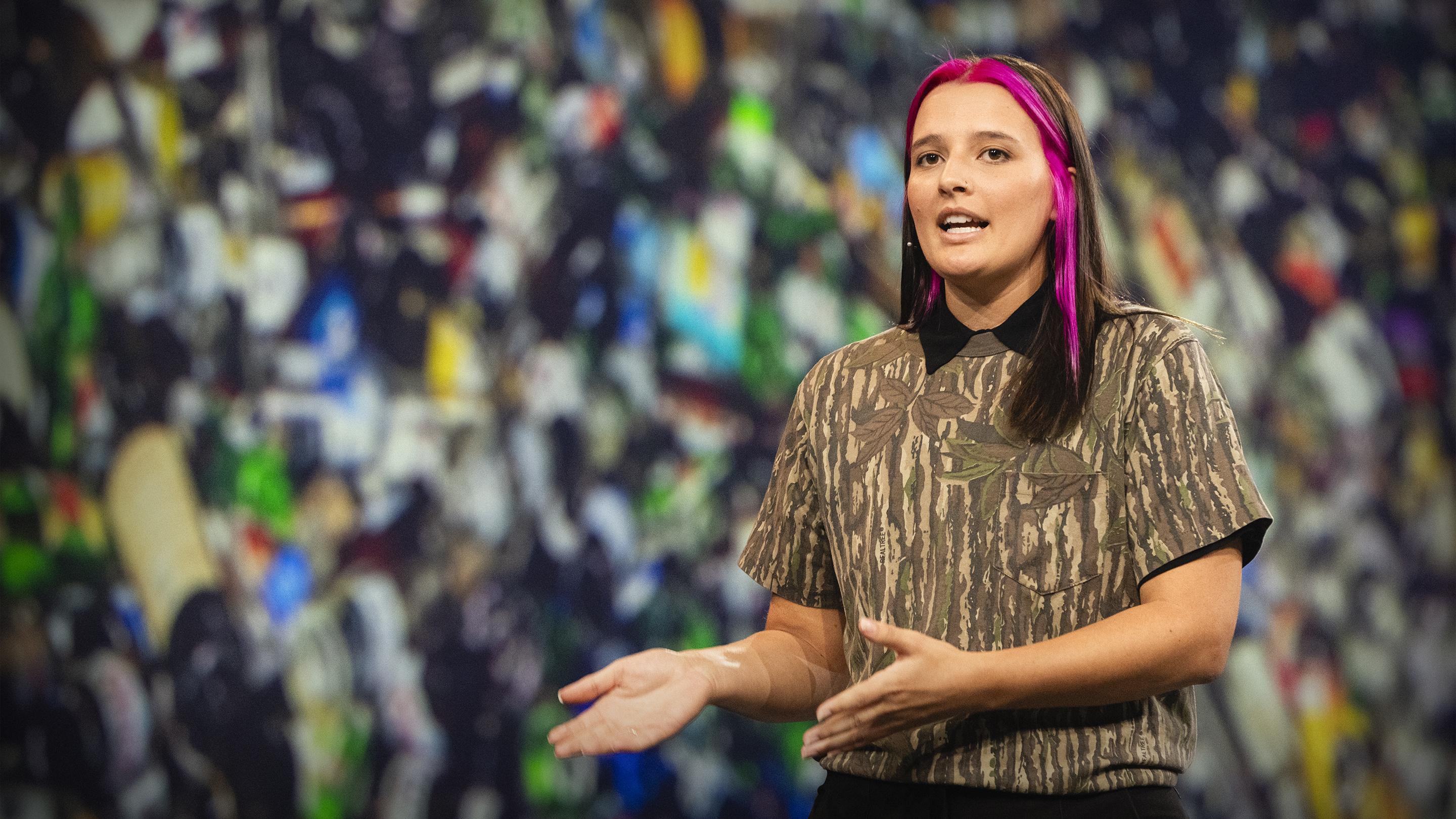
Your empty wine bottle could help rebuild coastlines | Franziska Trautmann

TED Talks Daily (SD video)
Shownotes Transcript
As a kid growing up on a Louisiana bayou, the boogeyman was the existential threat of my state being washed away with the Mississippi River. Louisiana loses a football field's worth of land every 100 minutes due to coastal erosion. It's an unimaginably large amount to a kid, but in my lifetime so far, we've lost over 600 square miles.
That's more area than New York City, San Francisco, D.C. and Atlanta combined. It's due to sea level rise, warming waters, increasingly severe storms and exploration of the oil and gas industry. Fast forward to 2020, in my last full semester as an engineering student, and over a two-buck chuck, my boyfriend and I lamented over the lack of glass recycling in Louisiana.
My state was landfilling about 295 million pounds of glass annually. The bottle we just finished would likely end up in a landfill. It felt like a total waste, and we wanted to figure out how we could get all of this glass recycled. The next day, it took a quick Google search to remember that glass comes from sand and that sand is an increasingly finite resource. We also learned about everything sand is needed for, including toothpaste, by the way.
And the last puzzle piece we found was this small, human-sized machine that could crush one bottle at a time into sand, and we jumped into action, setting up a GoFundMe campaign and a pilot project in the backyard of a fraternity house.
Now, you might be thinking to yourself, how in the world would two college kids ever be able to make a dent in these problems? And that would be valid. Plenty of people told us the exact same thing. But we didn't listen, because we knew that no matter how small of an impact we made, it would be worth it. It felt like we could alleviate two problems with one solution: convert the otherwise landfilled glass back into sand and use it in restoration projects across the state.
Easy, right? But we didn't listen to the haters, which is actually why we named our company Glass Half Full. But that glass-half-empty mindset might actually be one of the biggest threats we face today, because climate apathy might be the new climate denial, meaning that the biggest threat to our environment may no longer be people who deny our part in the changing climate, but people who deny that we can actually make a difference.
Now, climate change is happening right before our eyes. It's terrifying. I've witnessed firsthand the severity of rapidly intensifying hurricanes like Ida. But dread, doom and gloom tend to get us nowhere, whereas hope combined with action can be one of the most powerful tools to enact change. Since that late-night wine-fueled idea over four years ago, we've been able to divert more than eight million pounds of glass from our landfills --
We quickly grew out of that small, tiny machine and upgraded a lot along the way. We continued to work with over 50 scientists and engineers across the Gulf South, and they helped me learn if this is good-smelling mud or not, but also understanding the interactions of our sand with the plants, animals and even fungi of our region.
We've also answered difficult scientific questions, as well as questions like, "Can you actually walk on sand made from glass?" And I exposed my toes to the internet to answer that. In a few short months, we'll be opening up our new facility, enabling us to recycle the 295 million pounds of glass entering our landfills annually. Thank you.
And with a combination of biodegradable sandbags and native marsh grasses, we've already restored thousands of square meters along our coast, converting open water back into thriving wetlands. But the key to our success so far isn't that we had all of the answers in the beginning or tons of money to try this thing out. The key was that we simply started, and we kept going.
Somewhere, the belief that we as individuals could enact change trumped our doubts. And for us, finding a way to help with a problem much, much bigger than us meant taking that first step. And in our case, it was a step in the sand in an eroding but once magnificent swamp. Thank you all.